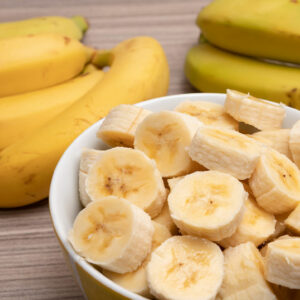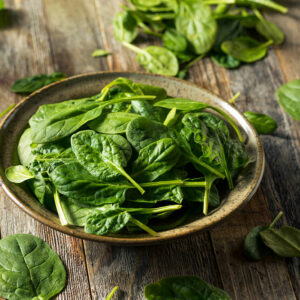Parkinson’s Disease – Foods to Eat and Avoid

Parkinson’s disease is a movement-related disorder caused by degeneration of the brain cells that control the body’s movements. The nerve cells stop producing dopamine – a neurotransmitter that works with other chemicals to communicate between nerve cells and muscles that control movement. This condition can be managed with timely diagnosis and various treatment methods, including oral prescriptions, Deep Brain Stimulation (DBS) procedures, lifestyle changes, and exercise.
Role of foods in managing Parkinson’s disease
There is no official recommendation or solid evidence yet to show that a specific food or a combination can help in managing the advancement of Parkinson’s Disease. It is a degenerative condition resulting in tremors, slow movement, imbalance, rigidity, sleep disorders, pain, mental health disorders, and sensory disturbances. Oral treatments for Parkinson’s Disease are known to cause multiple side effects:
- Nausea
- Vomiting
- Loss of appetite
- Constipation
- Dyskinesia – uncontrollable movements of arms, legs, torso, and face
- Confusion
- Daytime sleep
- Constipation
- Low blood pressure
Since Parkinson’s Disease mostly affects seniors, their food intake has to consider the physical and mental changes they go through, any comorbidities they may have, and also manage the side effects of the oral prescriptions. It is recommended to consult a nutritionist to devise the right menu plan that provides the required nutrition, helps manage side effects, and prevents worsening symptoms. Food has to be soft, easy to digest, and easy to eat, making meal times comfortable and stress-free.
Beneficial foods for Parkinson’s Disease
Patients with Parkinson’s require calcium to compensate for the loss of bone density, vitamins and minerals that can prevent the progression of symptoms, and fiber to ease constipation. A caregiver should create a menu from varied food groups, like carbs, dairy, proteins, fruits, and vegetables. Here are some of the important foods that can benefit people with Parkinson’s Disease:
Green leafy vegetables
Green leafy vegetables contain beneficial compounds like tryptophan, which may boost serotonin and dopamine. They also have anti-inflammatory properties that can reduce the risk of inflammation in the brain’s nerves, cells, and tissues. Greens are also rich in folate, vitamin E, flavonoids, and carotenoids. Include one serving of any of the following greens three to four times a week:
- Spinach
- Collard greens
- Lettuce
- Endive
- Rocket
- Beet greens
Vegetables
The choice of vegetables that is beneficial for Parkinson’s is wide, allowing caregivers to prepare healthy and tasty recipes that is easy to chew, tempting to eat, and also nutritious. Choose rainbow-colored veggies and keep rotating the menu through the week so that they get the best of phytonutrients, antioxidants, and micronutrients. Along with greens or meat, always serve three servings of vegetables daily. Choose from veggies like:
- Capsicum
- Carrot
- Winter squash
- Broccoli
- Potato
- Tomato
- Peas
- French beans
- Zucchini
- Eggplant
- Beetroot
Fruits
Fruits contain vitamin C, magnesium, and antioxidants that can help build health, enhance mood and prevent depression. Fruits are also rich in fiber and help constipation. Include fruits as part of a meal or a snack. Choose from a wide range of seasonal and fresh fruits rather than canned ones containing added sugar and preservatives.
- Blueberries
- Goji berries
- Oranges
- Elderberries
- Avocados
- Pears
- Dragon fruit
- Bananas
- Watermelon
- Cantaloupes
- Kiwi
- Strawberries
- Cranberries
Whole grains
Whole grains are abundant in antioxidants, fiber, vitamins, and folate, each of which can help improve symptoms of Parkinson’s Disease. While fiber can ease constipation, vitamins and folate can help fight fatigue. Antioxidants help in building immunity and control the progression of the Disease. Whole grain bread, crackers, desserts, cereals, porridge, stews, and salads are some recipes you can prepare with whole grains. Doctors ideally recommend three servings of whole grains a day. Choose from:
- Oatmeal
- Brown rice
- Shorgum
- Corn
- Buckwheat
- Spelt
- Quinoa
- Whole wheat
- Millets
Omega-3 fats
Omega-3 fatty acids gained prominence after research proved they could prevent cell degeneration. Including food rich in omega-3 fatty acids can help with cell and tissue damage and delay the worsening of symptoms. It can nourish the myelin sheath, which covers the neurons, keeping them healthy. It can also prevent further decline in dopamine levels. Include the following omega-3 fats in your diet:
- Mackerel
- Sardines
- Salmon
- Cod
- Pastured eggs
- Hemp
- Walnuts
- Nuts
- Seeds
- Flax seeds
Foods to avoid
Any food that is difficult to digest, promotes inflammation, or has zero nutritional value should be avoided. Food items with excess sugar, salt, and fat should be avoided as they can promote high BMI, trigger inflammation, and hasten cell damage. People with Parkinson’s must avoid the following five foods:
Processed foods
Processed foods have saturated fats, salt, hidden sugars, and preservatives, each of which can trigger inflammation. They may also increase blood pressure, worsen bad cholesterol levels, and increase seniors’ risk of cardiovascular diseases. The fat can also deposit in the liver, increasing the risk of fatty liver disease. People with Parkinson’s should avoid the following processed foods:
- Canned foods
- Processed snacks
- Cheese
- Yogurt
- Processed meat
- Ready-to-eat meals
Protein and iron-rich foods
While protein and iron are essential for everyone, high levels of these nutrients interfere with the absorption of Parkinson’s treatment. Though there is no need to shun protein and iron completely, you should watch the portions and frequency. Talk to a certified nutritionist who can recommend the right protein and iron.
Acidic foods
The current treatment for Parkinson’s comes with unavoidable side effects like nausea, vomiting, and loss of appetite. Acidic foods can further worsen these symptoms. Avoid acidic condiments like sauces, fresh red meat, wheat, carbonated beverages, beer, and hot chocolate.
Sugar rich foods
Sugar is a known inflammation trigger and adds zero value to one’s health. Avoid sugar-rich desserts. If one has a sugar craving, substitute desserts with fresh fruits.
Note: Consult a doctor or a certified nutritionist before making drastic changes to the meal plan. It is important to plan the meals and give adequate time between treatments and meals to avoid side effects like vomiting and nausea after eating.











